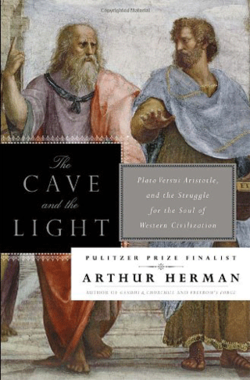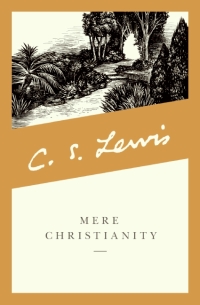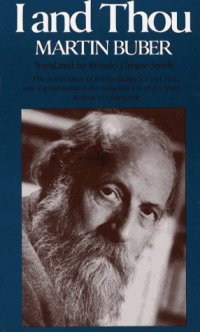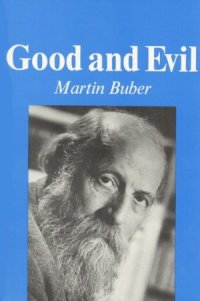 aristotle,
aristotle,  greek,
greek,  history,
history,  philosopher,
philosopher,  philosophy,
philosophy,  plato,
plato,  political,
political,  roman in
roman in  Ancient History,
Ancient History,  Book Review,
Book Review,  Geopolitical,
Geopolitical,  History,
History,  Literature,
Literature,  Society,
Society,  Theology
Theology In the past, I would post only book reviews pertinent to worship, music in the local church, or general Christian leadership and discipleship. Recently, I've been studying many more general topics as well, such as history, economics and scientific thought, some of which end up as reviews here as well.
 Friday, February 9, 2018 at 9:58PM
Friday, February 9, 2018 at 9:58PM  The Cave and the Light: Plato Versus Aristotle, and the Struggle for the Soul of Western Civilization
The Cave and the Light: Plato Versus Aristotle, and the Struggle for the Soul of Western Civilization
I am a student of history, having read much of the main classical Greek and Roman translated history sources. However, my study into the area of philosophy has been tertiary. This book provided not only an architectural outline of the Platonic and Aristotelian philosophical structures but a progressive history of their changes, branches, impacts and major figures on both sides. The book is written with warm and engaging tone while being crisp and insightful in its points.
This is a great book for anyone who wants a thorough history of western philosophy for a layman. It doesn't require college philosophy course training to follow the arguments , ideas or people. It is smartly self-contained and accessible. The best book I have read in the last five years.
The author's primary insight is, itself, a triumph of western thinking- that the world's most proliferated civilization has become so by the dynamism of its two polarities of philosophical inquiry. The tension of that dynamism has become the powerful tool for self-critique and self-correction that is built into the 2500 year-old scaffolding of western thought. This insight alone makes this book not only worthwhile, but essential to virtually everyone interested in their society and participation in it.
The author, Arthur Herman, is scant ever guilty of injecting personal prejudice into the text or it's summary findings. This makes it not only readable, but laudable.
At just over 700 pages, Herman, a Pulitzer Prize nominee, has presented the book in an affable style while staying solidly bound by scholarship and not making illogical leaps in his conclusions. He also doesn't treat the book like a thesis outline. There is no dissertation style and format here, giving the "tell them what you'll tell them, tell them, and tell them what you told them" mindless repetition. Thankfully, the scholar leans this book towards a popular audience and it reads perfectly well for the informed and uninformed reader.
The breadth of this work, the importance of the topic, the careful attention to detail, the rigorous explanation of change, and the final sterling conclusions it draws make this one of the best books I've ever read.
A brilliant work of international significance.
Amazon Link: http://amzn.to/2EfB3NV
Review by Kim Gentes
 aristotle,
aristotle,  greek,
greek,  history,
history,  philosopher,
philosopher,  philosophy,
philosophy,  plato,
plato,  political,
political,  roman in
roman in  Ancient History,
Ancient History,  Book Review,
Book Review,  Geopolitical,
Geopolitical,  History,
History,  Literature,
Literature,  Society,
Society,  Theology
Theology  Friday, February 22, 2013 at 2:25PM
Friday, February 22, 2013 at 2:25PM  There are few Christian writers that have had as deep and ongoing impact in the last century as C.S. Lewis. One of his most celebrated books has been "Mere Christianity". Originally written in 1944 from the texts of various radio broadcasts, Lewis compiled and revised this collection of thoughts into his seminal work that preserves both his legacy as a great thinker and his profound skill as a writer.
There are few Christian writers that have had as deep and ongoing impact in the last century as C.S. Lewis. One of his most celebrated books has been "Mere Christianity". Originally written in 1944 from the texts of various radio broadcasts, Lewis compiled and revised this collection of thoughts into his seminal work that preserves both his legacy as a great thinker and his profound skill as a writer.
While I had originally read this book in the mid-eighties, I knew it was time to revisit it. So, the last couple of weeks I re-read this classic Christian book a couple of times. In fact, reading it once actually was somewhat painful. I kept scouring the book and furrowing my brow as Lewis would make his knife sharp points at the end of each chapter. By the time I had completed one pass through the book, I knew immediately I must run through it again. The insights, and even more, the narrative flow are sparkling examples of great writing, from a master of language.
The more I read Lewis, the more it occurs to me that he is first and foremost, a writer. A brilliant writer, to be sure, but that primarily. In fact, Lewis makes this point in this book and tries to derail people who try to come at this book as theological treatise. This didn't strike me at first as being important, but the more I talk to others about this book, the more I realize it is true. I often hear others talk about "Mere Christianity" as though it were a theological defense. It is not. That isn't to say it is bad theology; rather that it isn't really written as a theological book (one in which Biblical texts are used as the centerpoint of building a case for a Christian perspective).
In one sense it is a Christian apologetic, but it doesn't come from the perspective of arguing Christian points against alternative religions or even atheistic ones. Instead, Lewis approaches the concepts much more broadly, dealing with the (universe, humanity and reality) and eventually narrows his scope to point at which the "big questions" of life are asked. Into that stream of thought, the author presents his thesis that the Christian God is not only the Creator but the ultimate Father of our eternal souls. But Lewis goes there in very deliberate, progressive steps, making sure to explore the thought process and objections of people who might be learning of the Christian faith.
Along that path, from investigation to discovery to comprehension to obedience (and all along the way, transformation), Lewis plants some of the most succinct and powerful phrases about the nature of man, the Creator and the universe we live in. For example:
In reality, moral rules are directions for running the human machine. Every moral rule is there to prevent a breakdown, or a strain, or a friction, in the running of that machine.1
Do not waste time bothering whether you ‘love’ your neighbour; act as if you did. As soon as we do this we find one of the great secrets. When you are behaving as if you loved someone, you will presently come to love him.2
There are literally dozens of quotable passages in this book- and pastors and authors have been quoting them for decades. In some ways, this book contains an expanded version of some of the core facts that Lewis writes in his famous sermon "The Weight of Glory"- but here he expands and draws a usable entrance way to non-believers to understand the Christian claims and follow and intelligent discourse about it. To be sure "Mere Christianity" is more meat than the sermon as well, and Lewis uses that storyboard to gradually move a reader from an unintelligent and lost world into a comprehension of the plan and love of God through His Son, Jesus Christ.
Lewis travels the distance from talking about a grand Cosmic Mind who is not only the author of the moral code, and behind the extance of all things, but who becomes the personal 3-in-One God who stands beside us (in Jesus), acts from within us (in the Holy Spirit), and opens grand arms to recieve us (in Father God) all as part of his program of love to draw man out of his death-ridden self into the life of being "sons of God".
The author does a spectacular job of answering the questions we all wonder about, but don't or can't find our way through the philosophical jungle of competing or amoral reasoning to find the truths we seek. With Lewis as our guide on this philosophical journey, we are in good hands, indeed. His mind, his writing and his raw humanity ask the tough questions and graciously walks us through both false and proper narratives to funding the likewise conclusions. It would be silly to say this book is a classic- everyone already acknowledges that. And yet it is that. It belongs alongside the best writings in Christian history.
Amazon Book Link: http://amzn.to/X0aUE3
Review by Kim Gentes
 Kim Gentes |
Kim Gentes |  1 Comment |
1 Comment |  Monday, February 27, 2012 at 12:38PM
Monday, February 27, 2012 at 12:38PM  “I and Thou” is a translated work, originally in German, written by author, scholar and professor Martin Buber. Explaining and exploring this book in a review would be very difficult as an exercise of structure, since the book is not, in any sense, a structured narrative. It is actually a kind of artful, linguistic treatise, the purpose of which seems to be to reveal the folly of language itself (and thought to some degree) to properly frame reality. Buber’s main contention is that our language and our modern world drive us from the childlike assumption of relationship (the I and Thou) to the “mature” and felonious way of life that objectifies myself (I), people (others) and the world into the frame of I and It. Changing the Thou to an It, according to Buber, is done through many ways- but all of them break the powerful reality that the true Thou (God) intended. According to the author, we are meant to see the world through relational connections, not simply as objects and experiences.
“I and Thou” is a translated work, originally in German, written by author, scholar and professor Martin Buber. Explaining and exploring this book in a review would be very difficult as an exercise of structure, since the book is not, in any sense, a structured narrative. It is actually a kind of artful, linguistic treatise, the purpose of which seems to be to reveal the folly of language itself (and thought to some degree) to properly frame reality. Buber’s main contention is that our language and our modern world drive us from the childlike assumption of relationship (the I and Thou) to the “mature” and felonious way of life that objectifies myself (I), people (others) and the world into the frame of I and It. Changing the Thou to an It, according to Buber, is done through many ways- but all of them break the powerful reality that the true Thou (God) intended. According to the author, we are meant to see the world through relational connections, not simply as objects and experiences.
As experience, the world belongs to the primary word I-It. The primary word I-Thou establishes the world of relation.[1]
More than any other part of the book, these two sentences scope the understanding of the entire text. I/It is a way to think about the world as objects and components. I/Thou is a way to think about the world that is relational. One compartmentalizes and dehumanizes others (I/It), the other makes everything possible and valuable by relation and connection not assignment of value.
By way of example, history is one way in which Thou changes to It. Buber clarifies that when we objectify (even living things) to describe them as details in the past, we remove them as living beings from our relational language (and hence our responsibility of personal direct relationship) to them. I and Thou is about the differentiation we place in understanding things as "it" and real beings as "thou", both of which are outside of "I". Everything outside of "I" is a way of seeing the world and defining both the "thou" and "it" as well as the "I". The whole concept sounds silly as I write it here, but becomes clear about 40 pages in to his book. For me, the writing is prose/poetry that helps extract us from the trappings of language that we are blind to. Think of Buber's challenge to writing this book-- imagine trying to help people see something that causes assumptions from the use of language. But in order to communicate the fact that language is problematic (or perhaps assumptive) in how we see the world, Buber must use language (the book) to deconstruct how people see their world. Buber does this with language (long before postmodernism had stolen this trick from the rationalists, believe it or not)- he doesn't use argument to deconstruct our assumptions- he uses writing style itself. So in using language (style) to deconstruct language (understanding) he accomplishes a dual purpose of deconstructing and constructing his new (though, not new, but just always missed due to our worldview) clarity to the characters of "I", "thou" and "it". By the time you get into the book deep enough to see his core concepts flourish into fully developed "results" you get some of the most riveting statements, such as this four sentence deluge of brilliance--
Feelings are "entertained": love comes to pass. Feelings dwell in man; but man dwells in his love. That is no metaphor, but the actual truth. Love does not cling to the I in such a way as to have the Thou only for its “content,” its object; but love is between I and Thou.[2]
The problem is, you can't get to that statement until you pass through Buber’s prerequisite points made through the first 40 pages of his book. I am learning a ton just reading this book, but it is likely I will have to re-read it a few times to start to mine its treasures well.
Still, the book contains dozens of succinct and poignant truths, the chief among them may be:
Love is responsibility of an I for a Thou.[3]
Another particularly astute observation he makes about all humanity
(This “fancy” does not in the least involve, however, a “giving of life to the universe”: it is-the instinct to make everything into Thou, to give relation to the universe, the instinct which completes out of its own richness the living effective action when a mere copy or symbol of it is given in what is over against him.)[4]
Speaking of infants/unborn children in the womb, Buber brilliantly explores their psychological reality. Here we see the idea that people try to create I and Thou relationships out of everything in life from the earliest age, because our first connection in existence is the I/Thou with the womb and person of our mother. Perhaps a bit Freudian, but ultimately a brilliant perception.
But my favorite parts of the book are that you can actually find practical nuggets of help for real life. This seemed surprising in such a combination of poetic, philosophical meanderings. One of my favorite quotes of this type is on marriage where Buber says:
Marriage, for instance, will never be given new life except by that out of which true marriage always arises, the revealing by two people of the Thou to one another.[5]
My final quotation is in the very practical ground of community, where Buber seems to echo another great thinker in the last century.
It is not the periphery, the community, that comes first, but the radii, the common quality of relation with the Centre. This alone guarantees the authentic existence of the community.[6]
This sounds very much like Bonhoeffer's idea of a wish-dream in community. Here Buber is saying that true community exists only when the common quality of relation is defined in the Centre. That Centre (God) itself defines the arc of community. Community doesn't define God, He defines it and gives it reality.
Amazon Book Link: http://amzn.to/zDbBff
Review by Kim Gentes
[1] Buber, Martin (1934). I and Thou translated by Ronald Gregor Smith (New York: Charles Scribner’s Sons, 1958) Kindle Edition, Location 187
 Kim Gentes |
Kim Gentes |  1 Comment |
1 Comment |  buber,
buber,  i and thou,
i and thou,  martin buber,
martin buber,  philosophy,
philosophy,  theology in
theology in  Apologetics,
Apologetics,  Book Review,
Book Review,  Mystic,
Mystic,  Reconciliation,
Reconciliation,  Theology
Theology  Monday, February 27, 2012 at 10:42AM
Monday, February 27, 2012 at 10:42AM  “Good and Evil” is a short, but insightful philosophical work by Martin Buber. The book is primarily involved with defining evil, exploring its origins and metaphors (across ancient scripture and myth) and understanding how it frames the struggle of man to become what God has called him to be. While the book is called Good and Evil, Buber spends very little time discussing good and, in fact, frames good only by giving a comprehensive understanding of its counterpart- evil. From that perspective, Buber seeks to develop his main points of the two forces.
“Good and Evil” is a short, but insightful philosophical work by Martin Buber. The book is primarily involved with defining evil, exploring its origins and metaphors (across ancient scripture and myth) and understanding how it frames the struggle of man to become what God has called him to be. While the book is called Good and Evil, Buber spends very little time discussing good and, in fact, frames good only by giving a comprehensive understanding of its counterpart- evil. From that perspective, Buber seeks to develop his main points of the two forces.
The book is broken in two sections. The first section examines five Psalms which deal mainly with the human plight of anguish and descending frustration in a world in which the wicked seem to prosper and righteous fail to win the day. The second section is a combination of both a dissection on the biblical account of the “fall” of man in the garden of Eden (and also the first active sin of Cain’s murder of his brother Abel) and an examination of the ancient Iranian/Zarathustrian myths that explore the origins of evil.
Buber’s contention builds through his exploration of evil at these various main points:
During Buber’s exploration of evil he generates an outline, by circumspection, of what “good” is. But his thoughts about good become a cogent synthesis in the final sections of the short book, where we encounter a combination of philosophical and theological thoughts that highlight Buber’s brilliance.
Buber infers, through negation, that good is staying focused and purposefully moving in the direction of God’s divine vision of your reality of who He created you to be, when he says
Phantasy... God pronounces evil because it distracts from His divinely given reality...[6]
All of Buber’s thoughts begin to rush like streams into one mighty river of thought in the last pages of his book, where his thoughts about human meaning and life surge off the pages. He concludes that man’s very life depends on God’s revelation to him, from which man can respond to move towards God by service which reflects and confirms that reason to which God created the man. God’s revelation, man’s service as authentication of that revelation, and the reiteration (via confirmation) back to the man is the perpetual cycle in which humans move in the right direction towards the creation God intended them to be. This is summed up beautifully in these final two quotes from the last chapter.
Man as man is an audacity of life, undetermined and unfixed; he therefore requires confirmation, and he can naturally only receive this as individual man, in that others and he himself confirm him in his being-this-man. Again and again the Yes must be spoken to him, from the look of the confidant and from the stirrings of his own heart, to liberate him from the dread of abandonment, which is a foretaste of death.[7]
and
Every ethos has its original in a revelation, whether or not it is still aware of and obedient to it; and every revelation is revelation of human service to the goal of creation, in which service man authenticates himself. Without authentication, that is, without setting off upon and keeping to the One direction, as far as he is able, quantum satis, man certainly has what he calls life, even the life of the soul, even the life of the spirit, in all freedom and fruitfulness, all standing and status- existence there is none for him without it.[8]
This is a brilliant book by an obviously brilliant mind. It may require slower reading to drink the concepts in here, but it is well worth the time.
Amazon Book Link: http://amzn.to/ABnmuP
Review by Kim Gentes
[1] Buber, Martin (1952). Good and Evil (Upper Saddle River, NJ: Prentice Hall 1992), Page 134
 buber,
buber,  christian,
christian,  good and evil,
good and evil,  martin buber,
martin buber,  philosophy,
philosophy,  poetry,
poetry,  theology,
theology,  writer in
writer in  Allegory,
Allegory,  Book Review,
Book Review,  Church,
Church,  Mystic,
Mystic,  Resource,
Resource,  Theology
Theology